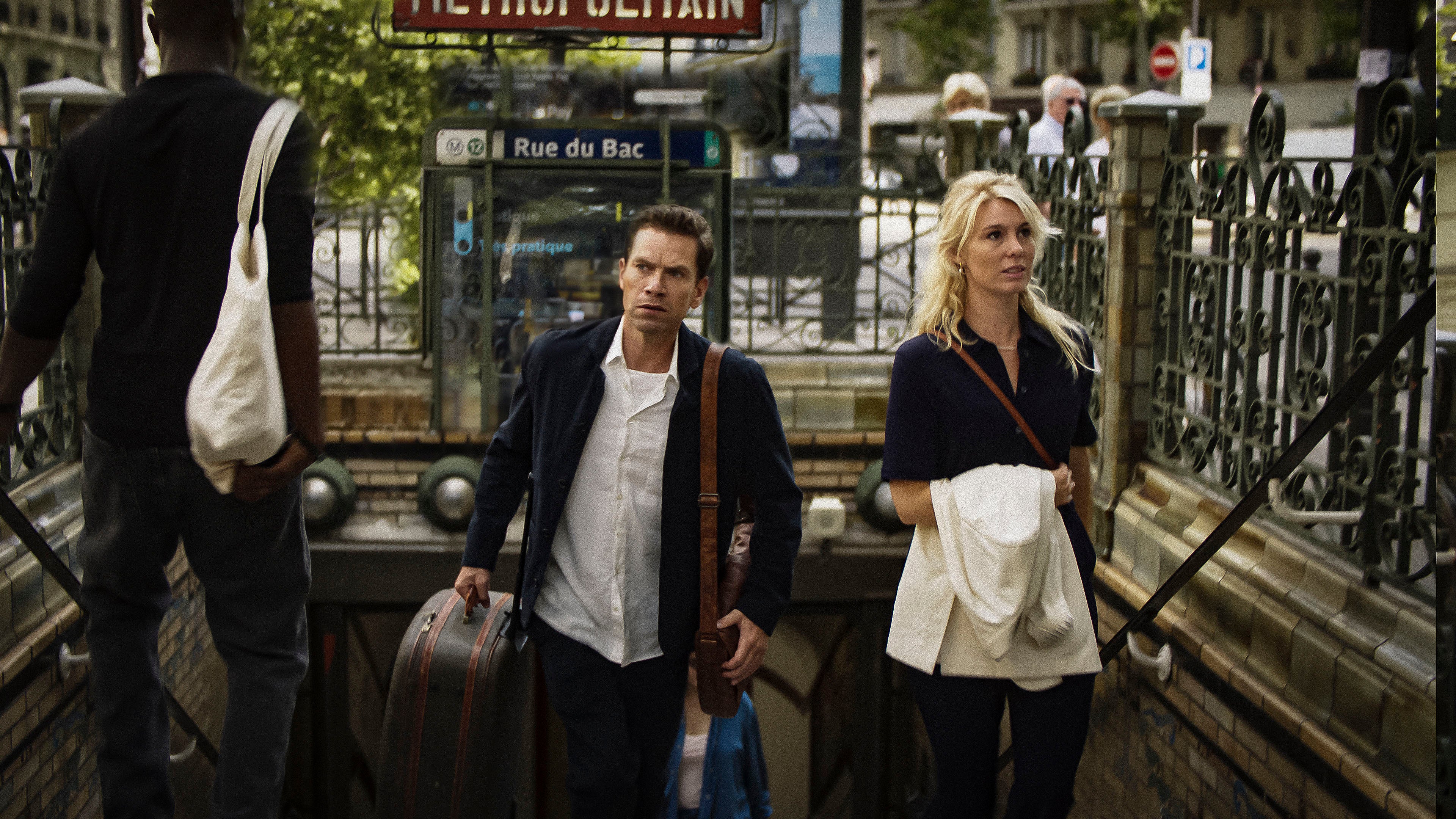Paradoxically, the end of the world as we know it has always been one of the sturdiest, most reliable narrative propositions imaginable. There’s an almost inexhaustible range of possibilities (will we perish at the hands of robots? Bombs? Pestilence? Extra-terrestrial invasion? There’s so much choice!) and the only limit is a writer’s imagination. One thing has usually been consistent, however. Humanity’s approaching doom has rarely been presented as anything other than spectacular.
Until now, that is. As co-founder of the purist-going-on-puritanical Dogme 95 filmmaking movement alongside Lars von Trier, Thomas Vinterberg has never been afraid of making a stark statement. He’s the creator of Danish drama Families Like Ours – an end-of-days drama trading, quite knowingly, in incrementally widening puddles rather than a deluge; in bureaucracy rather than brutality; social manners rather than societal collapse.
There is a well-established formula for this kind of story: complacency, then panic, then carnage, then some sort of post-apocalyptic survival struggle. Sky Atlantic’s The Last of Us, for example, has scrolled through these tropes, first brilliantly and then hesitantly. The moment the universal slides into the personal is often a sticking point: how can a story stay in focus once chaos has been unleashed?
Back in the Eighties, the BBC’s nuclear horror film Threads startlingly overrode this problem by simply obliterating almost everything – an entirely appropriate narrative scorched-earth strategy for the subject matter in question. The 2024 film The End We Start From used catastrophic climate change as a lens through which to examine motherhood in extremis. Families Like Us carves out new ground by suggesting that the more everything changes, the more things stay the same. It’s a story, essentially, about privilege and class.
The tone here is oddly calm. Even as the climate crisis becomes unmanageable, signs of uncontrollable inundation are largely absent. The spectacle is removed, leaving only the consequences. That’s brave storytelling. Still, the Danish government seems to have learned their lesson from King Canute: holding back the waves is a fool’s errand. The country is to be abandoned, but Denmark’s depopulation is an issue of resource allocation and pure, unsentimental pragmatism – the money that was being wasted on futile flood defences will now be spent on helping people find new homes. But it’s not quite that simple. The rest of Europe doesn’t seem sympathetic. In fact, it’s mentioned in passing that something similar has already happened in the Netherlands. With the climate crisis, we will keep our eyes clamped shut until the reality is absolutely unignorable. Accordingly, there’s a new wave of refugees – only this time, they’re white and arriving from previously wealthy countries.
Almost immediately, polemical intent manifests itself on-screen as extreme admin. As we meet architect Jacob (Nikolaj Lie Kaas), he’s receiving a tip-off about the government’s plans from his brother-in-law, political advisor Nikolaj (Esben Smed). Can he free up some money by getting his property sold before news of the forcible relocation is made public? This sounds mundane, and in many ways it is. But it’s also deadly serious. Families Like Ours zeroes in mercilessly on the house of cards that is modern capitalism. The buyer for Jacob’s house manages to extract himself from the deal just in time, but it’s a shameless attempt to save his own family’s skin at the cost of another’s ruin. Heroism is in short supply.

And all over the country, similar moral horrors are taking place. Will Jacob’s teenage daughter, Laura (Amaryllis April August), abandon her mother as a move to Paris seems possible? Will young football prodigy Lucas (Max Kaysen Høyrup) take up his place at the Liverpool FC Academy, even if it means separating from his mum? There’s a wider, more telling separation at play, too, between privately wealthy families and those forced to rely on state funding. The lucky, the connected and the wealthy will be going to Paris or London. Others will be packed off to the slums of Bucharest. Most climate disaster fictions (think of the group of outcasts in the library in 2004 film The Day After Tomorrow) idealistically posit these crisis points as moments of equality; when people from different backgrounds and social strata are forced to work together. It rings chillingly true, though – this enforced split between the haves and have-nots is exactly what would actually happen, and Vinterberg makes sure we understand that.
And what of everyone else? Denmark’s working class barely get a look in beyond a subplot around Nikolaj’s partner Henrik (Magnus Millang) and his brother, who is in debt to some angry building contractors. At one point, a panicky Henrik shoots an intruder dead and then asks who he’s killed. “No one we know,” comes the deadpan reply. In other words, no one who matters. The world beyond Denmark is explored even less – although if the situation is this serious in Denmark, how bad must it be in Bangladesh?
Finally, there’s nothing about this insularity that doesn’t feel entirely deliberate. Exploring humanity’s crisis point in this oddly mundane way might be the best way of reaching people. In a crowded landscape, in which inventive apocalyptic scenarios gather and multiply like flies on a corpse, this series is an unnervingly unvarnished still point. Why is Families Like Ours like this? Because families like ours are like this, too.
‘Families Like Ours’ is on BBC iPlayer now and debuts on Netflix in America on 10 June







